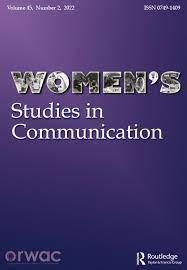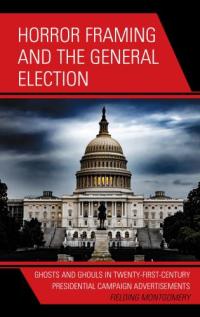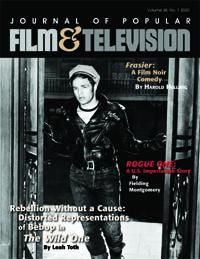Fielding Montgomery

Lecturer, Communication
Research Expertise
Political Communication
Popular Culture
Rhetoric
Dr. Fielding Montgomery is a Communication scholar interested in the intersections of rhetoric, political culture, and popular culture. Fielding received his PhD from the University of Maryland and his MA and BA from Baylor University. Fielding also is currently the submissions editor for Feminist Studies.
Fielding has published on the topics of popular and political culture and extremism in academic journal articles, including: "The Monstrous Election: Horror Framing in Televised Campaign Advertisements during the 2016 Presidential Election” in Rhetoric & Public Affairs; "Freedom of the Press and Perceptions about Government Corruption" in the International Political Science Review; "Rogue One: A U.S. Imperialism Story" in the Journal of Popular Film & Television; "Only YOU Can Prevent This Nightmare, America': Nancy Pelosi As the Monstrous-Feminine in Donald Trump’s YouTube Attacks" in Women's Studies in Communication.
Fielding is also the author of his book, Horror Framing and the General Election: Ghosts and Ghouls in Twenty-First-Century Presidential Campaign Advertisements.ts. His dissertation explored how popular and political culture intersections have been used to propagate reactionary ideologies.
Publications
Derailing the capitalist engine: theorizing relations of mujō through Mugen Train
Rhetorical analysis of the compelling critique of neoliberal capitalism in the 2020 anime film, Demon Slayer: Kimetsu no Yaiba the Movie: Mugen Train
Author/Lead: Meg Itoh, Fielding Montgomery, Taylor Aline H…As one of the most successful pieces of transnational popular culture, we rhetorically analyze the compelling critique of neoliberal capitalism in the 2020 anime film, Demon Slayer: Kimetsu no Yaiba the Movie: Mugen Train. Alongside this criticism of neoliberal capitalism, we theorize relations of mujō (無常/impermanence) found in the film, foregrounding this Buddhist principle to advance ways of being that resist neoliberal capitalist impulses. We forward three tenets that emerge in our analysis of this film: (1) recognizing that all beings are embedded within shared entanglements; (2) holding all beings responsible to serve others; (3) transcending the bounds of death by passing the torch of omoi (想い/human feeling). We argue that Mugen Train’s protagonists, the Demon Slayers, embody mujō that demonstrates how those under capitalist subjugation can only be liberated by recognizing human community grounded in such a relational ethic. We thus situate relations of mujō as a critical rhetorical theory that releases us from the neoliberal capitalist pursuit of mugen (無限/limitless).
Read More about Derailing the capitalist engine: theorizing relations of mujō through Mugen Train
Understanding transnational decontextualization-recontextualization through Shingeki no Kyojin: The perils and possibilities surrounding Japanese manga and anime
We examine how the transnational process of decontextualization-recontextualization can shift the messages of popular culture texts as situated in differing collective memories.
Author/Lead: Fielding Montgomery, Meg ItohJapanese anime has continued to gain recognition as one of the strongest cultural influences in a globalized world. We examine how the transnational process of decontextualization-recontextualization can shift the messages of popular culture texts as situated in differing collective memories. To highlight this process, we analyze Shingeki no Kyojin (known to English-speaking audiences as Attack on Titan). Shingeki no Kyojin provides insightful grounds for analysis given its tremendous popularity in both Japan and beyond, its message of resistance against U.S. militarism, and its recontextualized uptake by the American alt-right, even including an Arizona congressman. Our analysis reveals the importance of understanding popular culture alongside context and the impact of decontextualized-recontextualized transformations of meaning on transnational processes of collective memory discourse.
“Only YOU Can Prevent This Nightmare, America”: Nancy Pelosi As the Monstrous-Feminine in Donald Trump’s YouTube Attacks
The construction of Nancy Pelosi as the monstrous-feminine reveals itself in the highly misogynistic attack advertisements of Donald Trump’s 2020 presidential reelection campaign.
Author/Lead: Fielding Montgomery, E. Brooke Phipps
The construction of Nancy Pelosi as the monstrous-feminine reveals itself in the highly misogynistic attack advertisements of Donald Trump’s 2020 presidential reelection campaign. In our analysis of five YouTube attack ads, we demonstrate how short-form digital advertisements use the conventions of digital platforms to heighten the elements of horror used to construct the monstrous-feminine. Drawing from horror genre logics and editing conventions, the Trump campaign produces a narrative strategy that preys on conservative fears regarding women, race, and breaches in a gendered social contract. Targeting one of the most powerful women in American politics, Trump’s digital ads deploy a variety of editing strategies combined with common horror tropes to push audiences toward violent conclusions of how to “defeat” the monstrous-feminine, Pelosi.
COMM Doctoral Student Authors New Book about Political Ads
Montgomery authors first book on horror framing and the presidential political commercials of the 21st century.
Author/Lead: Fielding Montgomery
In Horror Framing and the General Election: Ghosts and Ghouls in Twenty-First-Century Presidential Campaign Advertisements, UM doctoral student Fielding Montgomery reveals a pattern of mostly increasing horror framing implemented across presidential elections from 2000 to 2020. By analyzing the two most common frameworks of horror within U.S. popular culture (classic and conflicted), he demonstrates how such frameworks are deployed by twenty-first-century U.S. presidential campaign advertisements. Televised advertisements are analyzed to illustrate a clearer picture of how horror frameworks have been utilized, the intensity of their usage, and how self-positive appeals to audience efficacy help bolster these rhetorical attempts at persuasion. Horror Framing and the General Election shows readers how the extensionally constitutive ripples of horrific campaign rhetoric are felt in contemporary political unrest and provides a potential path forward.
Read More about COMM Doctoral Student Authors New Book about Political Ads
Rogue One: A U.S. Imperialism Story
This essay analyzes one of the newest additions to this lineage, Rogue One: A Star Wars Story, and the ways the film moves the original Star Wars from the purely fantastical to the contemporary, political climate.
Author/Lead: Fielding MontgomeryAmong the most prominent cinematic franchises, the Star Wars universe has shaped popular culture in the United States for over forty years. This essay analyzes one of the newest additions to this lineage, Rogue One: A Star Wars Story, and the ways the film moves the original Star Wars from the purely fantastical to the contemporary, political climate. Given Rogue One's chronological position between the original and prequel Star Wars trilogies, the film acts as a bridge between the two. Rogue One connects the overt politics of the prequel trilogy with the covert, yet still present, politics of the original trilogy. Ultimately, Rogue One mirrors contemporary conflicts and crises in the geopolitical sphere and moves the original Star Wars films into this territory, creating a potential rhetorical crossroad for renewed cultural readings.


